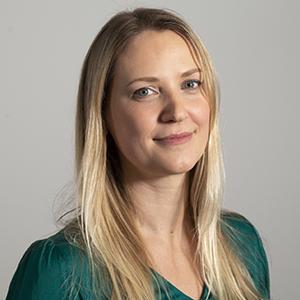Louise McCoy is Commercial Director of Start Up Loans, a government-backed programme that launched in 2012 to provide support and loans to new and early-stage businesses throughout the UK who might struggle to access finance (up to £25k) elsewhere.
Having made it through another turbulent year of pandemic recovery, navigating the rising cost-of-living and higher inflation on top of supply chain issues and labour shortages, small businesses have shown incredible resilience. Whilst there are no doubt challenges yet to come, I’m heartened to see signs that better days may be on the horizon.
New data from Companies House shows the number of people leaping into entrepreneurship is consistently growing. Last year 784,762 people registered a business, a 17% increase from 2019. Similarly, a survey by Enterprise Nation revealed that a third of UK adults are considering starting a business this year. That’s something to be celebrated.
It is exciting to see that more people are thinking about taking the plunge into business ownership, and this growing spirit of entrepreneurship further fuels our mission at Start Up Loans – to ensure everyone has access to the funding and support they need, no matter who they are or where they’re from.
During times of economic volatility, our role in supporting small businesses is even more crucial. In helping start-ups get off the ground, we are helping to inject growth potential into our economy. Whilst high street lenders are less likely to offer loans for fear of people defaulting, the government-backed Start Up Loans scheme is uniquely positioned to take more risks. That means that there might be higher loss rates when compared to traditional high street banks, but funding such a high proportion of start-ups has a real social benefit to the UK, which is why the policy objective is to help them to succeed.
The programme has, however, been shown to provide excellent value for taxpayers’ money – the economic benefits of the programme are almost six (5.7) times its economic costs.
Smaller businesses’ economic impact is undeniable. According to the FSB, they are responsible for 60 percent of all private sector employment in the UK, support local supply chains, and help generate money for the local economy – and they often fill gaps in the market bigger enterprises might not be able to spot.
A great example of this is our Start Up Loans recipient Hannah Saunders. Hannah, who has a passion for the outdoors, couldn’t find products that would protect her son’s skin when he came on adventures with her. Spotting a gap in the market, Hannah left her career in the RAF to develop a range of skin care products for children, and Toddle Born Wild was created. She now has a team of seven, and the products are stocked in Virgin Atlantic, Ocado, WH Smith’s travel, National Trust stores, Not on the High Street and Amazon.
Similarly, Ann-Marie Kinlock was looking for a haven away from home where she could relax with her kids without worrying if they were being too noisy. Realising her local community in Hackney, London, needed more family-friendly spaces, she founded Kindhaus in December 2022, an indoor playground for kids and coworking space for busy parents.
We are proud to have supported over 100,000 small business owners since 2012 – and 40% of those Start Up Loans have gone to female founders like Hannah and Ann-Marie. To put that in context, one in three entrepreneurs in the UK are women (Alison Rose Review of Female Entrepreneurship), and 22% of companies in the UK are led by women (Investing in Women Code). That means we are currently offering finance at a much higher rate to this group. However, we want to go even further and, working with our UK-wide Delivery Partners, are aspiring to reaching a 50/50 split of male and female recipients as soon as possible.
It’s likely that 2023 will pose its own set of challenges, but I’m certain that with the right support and by remaining agile, our small business community will have the necessary tools to thrive. I’m incredibly moved by the resilience and success shown by business owners across the country in recent months, and I’m excited to see those businesses continue to grow, and others walk in their footsteps, as we look ahead to brighter days.
Share via:








































